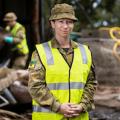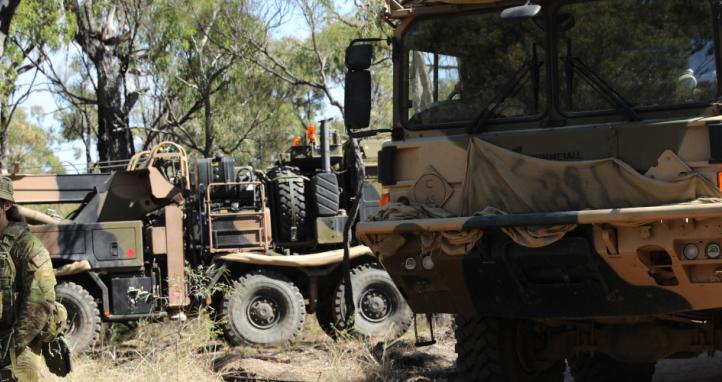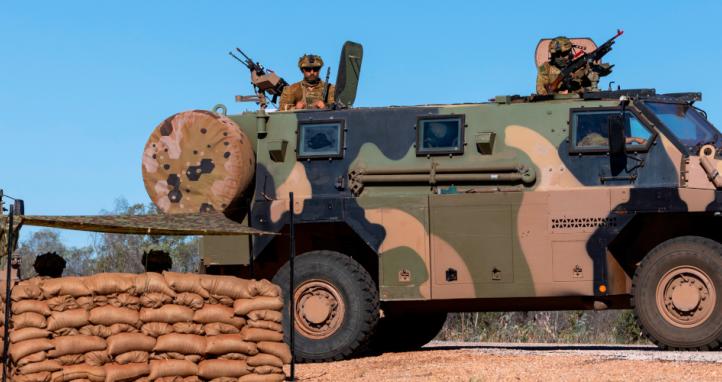Having one’s preconceptions and beliefs smashed into metaphorical pieces is an experience which is too often avoided. The increased focus upon professional development which we are currently experiencing is presumably to foster an environment to challenge oneself and enable growth. Therefore, is it enough to merely dedicate a little time for a daily trawl through The Cove for some light reading? In which case you very well may ask, why am I bothering to do so right now?
Great question, well asked. I may very well have lost myself some potential readers with such flippant remarks. Regardless, I implore you to read on, and will attempt to make it worth your while. This article has been written in alignment with a very important time of the year. Though, it is a time of the year which can be painful for many to scratch too far beneath the surface. Let us do so anyway. In recognition of NAIDOC Week, I am writing this article to pass on some lessons I learnt from my time involved in the Army Aboriginal Community Assistance Programme (AACAP).
In 2017, I had the privilege of working as the Health Development Officer (HDO) for the AACAP conducted in Toomelah; land of the Gomeroi people. I expected this position to be challenging at times, though I believe I was too focused on the practicalities of the situation. Deploying a field hospital comes with some complications. As does managing a group of highly intelligent specialists, who were in many aspects, much smarter than I. However, the aspect of this position for which I was unprepared, were the internal challenges. I was not alone in these, as I also witnessed struggles and changes within members of my team.
Preconceptions of mine which were systematically dismantled ranged from seemingly small, to earth shattering. One which was seemingly inconsequential, was my habit to flippantly refer to myself as nomadic, given the transient nature of living arrangements in the Army, and my tendency to attract 12 month postings. I would often link this with the idea that I had no affinity with a particular area of the country anymore. Then I had the pleasure of working with descendants of a truly nomadic people. Listening to the way they spoke of their land was awe-inspiring. I had thought I was a proud Australian, but I came to realise that comparatively, my pride in our 'wide brown land' (Mackellar, 2015) was almost inconsequential. This was not an easy truth, but I believe a necessary one. The Gomeroi people spoke of the land as if it is an actual part of them, and perhaps those of us who are newer Australians could learn from this.
The town of Toomelah was established in 1937 as an Aboriginal Mission, moved from previous locations which had been established from 1912. Toomelah did not cease operating as a Mission until 1975. (Human Rights Australia, 1988) It is hard to place into words the damage that was done over merely 63 years, to a people who hold a cultural link to the area of at least 50,000 years. Whilst on AACAP, I saw that the locals still refer to the township itself as ‘The Mis’.

Members of the AACAP Health and Training teams, along with Toomelah community members, listen to Carl McGrady pass on his wisdom regarding bush tucker and medicine.
I had always considered myself a culturally open person, and was always appropriately appalled with the dark aspects of Australia’s past. However, hearing personal accounts from Toomelah residents of the oppression experienced as late as 1975, was absolutely heart-breaking. It is unsurprising that communities such as Toomelah experience social difficulties to this day after being unceremoniously torn from their culture and identity for so long. The healing process and rediscovery of one’s identity must be a slow and painful process. Luckily, Toomelah has enigmatic and passionate leaders such as Carl McGrady. I give Carl a special mention herein because when I contacted him to confirm the correct spelling of the Gomeroi people for this article, he said to just ensure I spelt 'awesome' correctly. Classic Carl. He is rather awesome.
There are many people in the Army who revel in participating in numerous AACAPs, affectionately referred to as 'repeat offenders'. However, there is a hesitance amongst many others to be involved with the project. It is a long period away from home, without some of the perceived benefits of overseas deployments. However, this is rather a selfish way to view our profession, as we have a responsibility to our own country as well. We cannot be selective in the features of being ‘Australian’; choosing only aspects with which we would like to align.
Atrocities occurred in the making of this country, and if we wish to be residents within it, we must work to repair the damage. Distancing oneself from this fact by claiming a lack of personal involvement, is, effectively, cowardice. Such horrendous incidents were allowed to occur because of the allowance of a certain culture. The nature of atrocities may have changed, but Australia still suffers from a culture that enables inequality. Whether we wish to distance ourselves from unpleasantness or no, we are a part of this culture. This country has a very dark past, which continues to affect the present. For how long we will allow it will affect our future, is a choice belonging only to us.










On behalf of the Gomeroi mob thank you and the ACAAP team for your time and generosity.